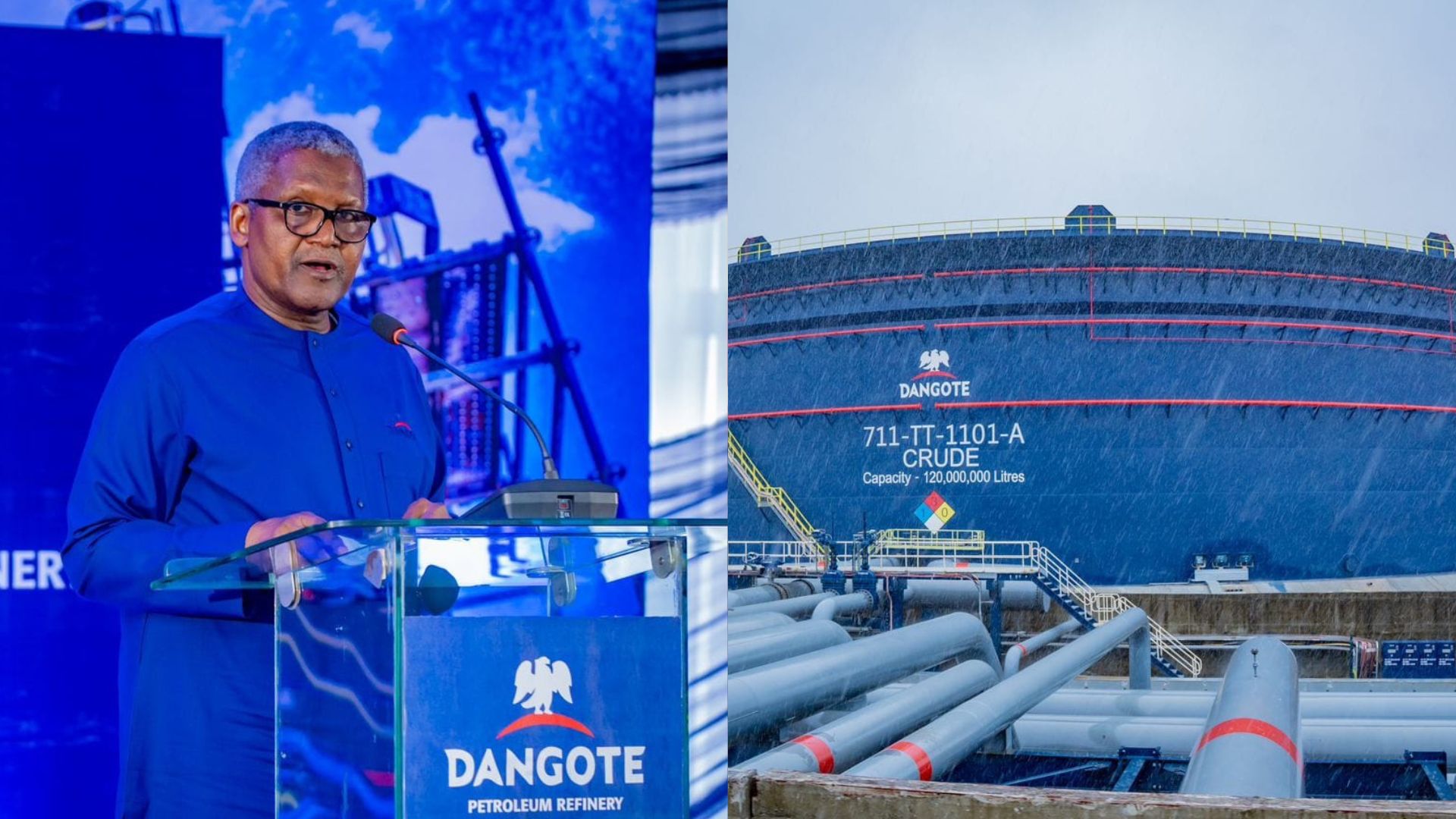
The Dangote oil refinery is gearing up to take in around 400,000 barrels of Nigerian crude daily over the next few months, shaking up Africa’s import and export scene.
According to the cargo allocation list seen by Bloomberg, the 650,000 bpd refinery will receive about 24 million barrels of local oil in October and November as it relies more on homegrown supplies.
Now, Dangote is set to shake up the Atlantic oil market by reducing Nigeria’s crude exports. The refinery plans to take 13 to 14 shipments from Nigeria’s typical monthly program of about 50 cargoes.
According to economists, the Dangote refinery might halt the decades-long gasoline trade from Europe to Africa, which is worth $17 billion each year.
Some shipments in the next couple of months might not arrive as scheduled, and October’s list even has two cargoes that were already pushed back from September.
However, the planned volume is still way higher than the average of 255,000 barrels a day of Nigerian oil that Dangote processed in the first half of the year as it slowly increased its operations.
The latest allocations indicate that Dangote has been cutting back on its purchases of U.S. crude, according to traders. Earlier this year, the refinery brought in millions of barrels of WTI Midland, but then it resold some of that oil and decided against buying more.
Last month, the Nigerian National Petroleum Company struck a deal with Dangote, where the state-owned energy firm will supply crude in exchange for being the exclusive distributor of the refinery’s essential gasoline production.
The regulatory body recently announced that it would be ending the exclusive purchasing rights it had with the Dangote refinery during its early days. This means that Dangote can now negotiate directly with marketers about how to set market prices.
On October 1, the federal government of Nigeria started selling its crude oil to Dangote Refinery and other local refineries in its own currency, the naira.









